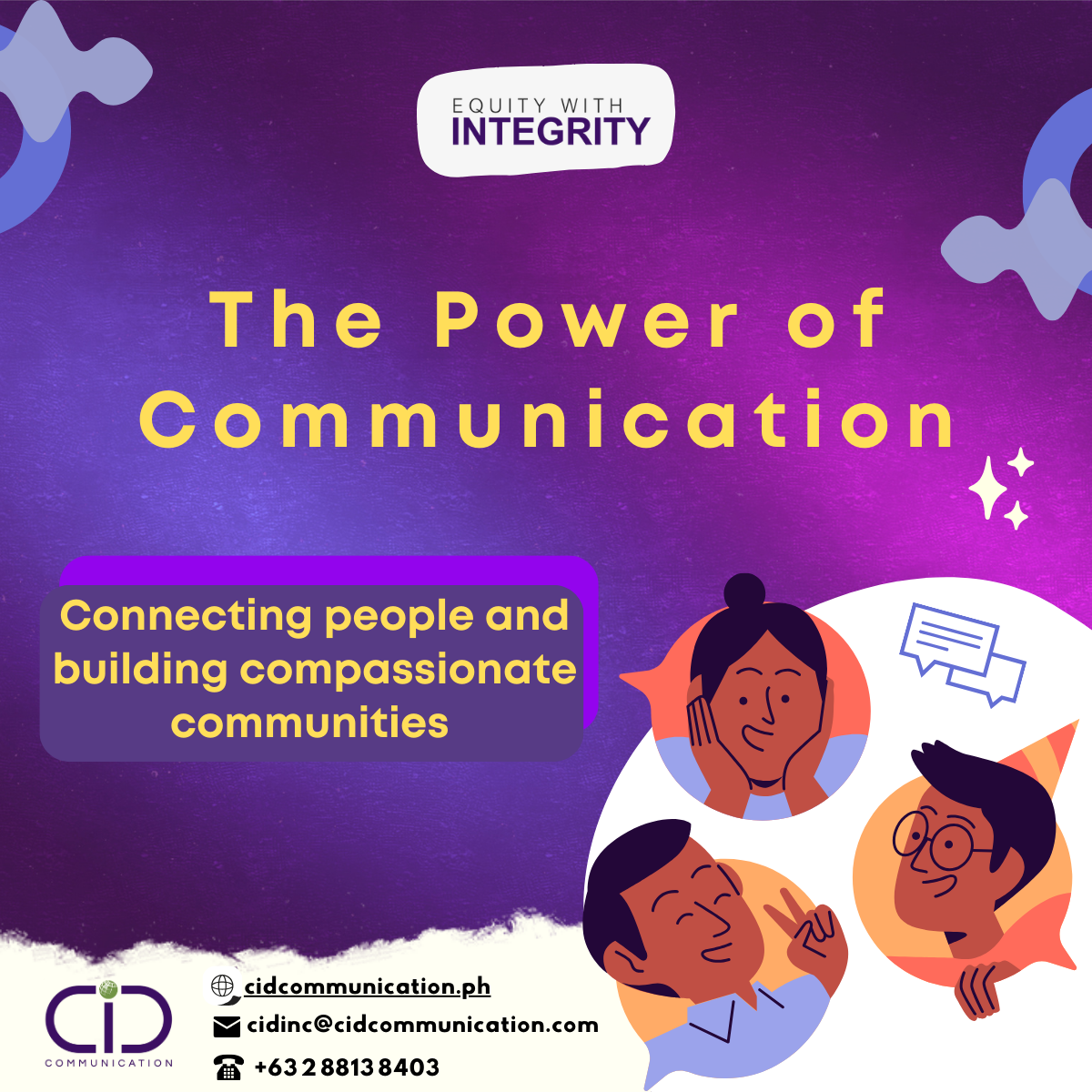World Communication Day empowers mass media to mold society's perception.
May is indeed a vibrant month for festivals in the Philippines. Notable fiestas include Pahiyas Festival in Quezon Province, Magayon Festival in Albay, and the famous Flores de Mayo. Aside from festivals, May offers other reasons to celebrate. One such occasion is World Communications Day that will be celebrated on May 12, 2024.
It is a globally recognized occasion that highlights the importance of effective communication in our interconnected world. It serves as a reminder to foster understanding, empathy, and meaningful dialogue across cultures and languages.

Instituted by Pope Paul VI in 1967, the World Communications Day stands as an annual celebration that prompts us to contemplate the possibilities and obstacles presented by contemporary forms of social communication. These include the press, motion pictures, radio, television, and the internet, all of which provide the Church with avenues to convey the gospel message.
Pope Paul VI aimed to emphasize the immense influence of communication media and its role in cultural transformation. He and his successors acknowledged the positive prospects that mass media offer for enriching human lives with values such as truth, beauty, and goodness. He also underscored the negative effects of spreading less virtuous ideas and creating mental and moral strain through a barrage of conflicting messages.
Sparking important conversations, leveling the playing field
Mass media plays a significant role in shaping attitudes toward social, political, and cultural matters by promoting specific values and influencing how people perceive societal norms. Likewise, news outlets have the power to influence how people perceive certain issues, leading to increased awareness and discussions.

Television shows, movies, and advertisements can challenge traditional viewpoints and spark conversations. Through compelling narratives, they address critical social issues such as racism, poverty, mental health, and discrimination.
For instance, “Die Beautiful” is a Filipino film that explores the life of transgender woman Trisha Echevarria, played by actor Paolo Ballesteros. The movie addresses several important social issues, such as social acceptance, adoption, and homophobic prejudice.
Social media, on the other hand, has become a tool for individuals to share their opinions and mobilize support for social causes. One of the best examples is the #BlackLivesMatter movement which gained immense attention through social media. It provided a vital platform for discussions on racial inequality and police brutality, fostering awareness and driving change.
Mass media also plays a crucial role in promoting global connectivity and enables businesses big and small to efficiently reach potential consumers through targeted advertising and marketing strategies. In public relations, mass media is crucial for conveying information to the public. PR companies enlist mass media’s help to popularize ideas, shape narratives, and establish credibility. It also lends a broad platform to disseminate messages, providing depth and substance to promotion efforts that may otherwise be lost in traditional advertising methods. This allows brands to gain third-party validation for PR efforts.
Hidden consequences of media overindulgence
Through the years, mass media has developed and evolved, adapting to technological advancements and societal changes. From ancient forms of communication such as cave paintings and oral storytelling to modern digital platforms like social media and streaming services, the way we share information and connect with others has transformed significantly.
While media offers numerous opportunities, it also has its share of negative impacts when not used wisely. For instance, false information can be spread easily. In the rush to break news, newsrooms sometimes prioritize speed over accuracy, leading to confusion and misinformation. Misleading news stories, rumors, and conspiracy theories can quickly impact public perception, shaping opinions and behaviors.
Additionally, excessive use of social media has been associated with mental health issues, especially among youth. Studies show that heavy social media use increases the risk of depression, anxiety, loneliness, self-harm, and even suicidal thoughts.
Responsible media consumption involves media literacy. Being media-literate helps us sift through the information overload and make informed choices about what to engage with. Critical thinking is also necessary to navigate the complexities of mass media. As consumers of media, it is crucial to approach information critically and seek reliable sources to make informed decisions. Remember, being mindful of the content we engage with can mitigate these negative impacts.
Communication is crucial for building relationships and connecting with others. Mass media plays a significant role in facilitating this communication by allowing us to share knowledge, ideas, and emotions. Without communication, our world would be isolated and stagnant. Imagining a world with no communication channels, such as newspapers, radio, television, internet, and social media, we would be cut off from each other, unable to express ourselves or convey information.
On World Communications Day, people acknowledge the significance of communication in promoting understanding and peace. Communication, in various forms, shapes our relationships and drives progress. Enhancing our communication skills, listening actively, and engaging in meaningful conversations helps us express love, negotiate deals, and advocate for positive change. Effective communication plays a crucial role in shaping our lives and the world around us.
Our pledge
At CID Communication, we understand that communication goes beyond conveying information. It is about forging connections, fostering empathy, and creating a more compassionate and informed global community. Our expertise lies in strategic communication, where we strive to build strong relationships and enhance effective channels between brands and their consumers.
We also owe our success to the invaluable contributions of media industry professionals. From journalists fearlessly reporting from conflict zones to editors shaping narratives, broadcasters reaching millions, and content creators sparking conversations—thank you. Your dedication amplifies messages, tells compelling stories, and keeps the public well-informed.
Together, we contribute to a better world—one where understanding triumphs over ignorance, compassion over indifference, and informed decisions over blind choices. Let’s continue building bridges through communication.



